Surgery is one of the tougher rotations physically and emotionally with the early mornings, long hours standing, and a wide range of personalities. I knew I likely did not want to pursue surgery, but I was going to enjoy every minute as this would likely be my only 8 week exposure to surgery. This post on how to study for the surgery clerkship will also include lifestyle tips for surviving one of the more grueling clerkships.
Typical Schedule
Most surgical residents start pre-rounding by 5:30/6 am to be ready for cases to start at 7:30 am or attending rounds to start by 8 am. Now this is all team dependent, so reach out to your assigned resident before you start to learn when and where you should meet the team. Depending on the day and service, you could be out early afternoon or later into the evening.
My services were 4 weeks of colorectal surgery, 2 weeks of ENT, and 2 weeks of urology. I really enjoyed my time on colorectal surgery and urology in particular. When else do you get to hold a colon in your hands, visualize and feel severe Crohn’s strictures and inflammation, and place your hands into a living patient’s abdominal cavity?
Your Expectations
Ask what your expectations as a student are on day 1 of each service. Talk to past students on the services to get the inside scoop on how to be helpful. You are likely expected to scrub into every case and get up close and personal with the surgeons. A classic medical student job is suctioning blood and smoke from the Bovie (electrocautery device). You will also close up portholes and potentially place staples and close up larger incisions. You may help hold the camera for laparoscopic surgeries or help wire a jaw shut for a mandibular fracture.
Usually, the greater expectations are on the general surgery rotations, which in my case was colorectal surgery. I would arrive to the hospital early enough to pre-round on my patients and write my notes. Read the night notes, and talk to the night nurse to see how your patient did overnight. Surgical rounds are early, so you will often need to wake your patients. Ask them the important post-op questions regarding eating, drinking, voiding, passing flatus, stooling, ambulating, and pain control. Be sure the incision is clean and dry. Make sure their white count or temperature are not creeping up (increased WBC count the day after surgery is normal). Make sure their BP is not too low with pain meds, that they are not developing an ileus (we love flatus in surgery), and that they are comfortable. Look for signs of infection, such as spreading erythema or pus around the incision sites. If you think your patient is in danger, or needs something, talk to the nurses and your team.
What You Need
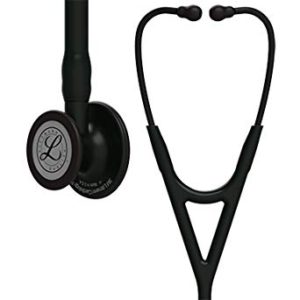
Stethoscope – I have this stethoscope (Littmann Cardiology IV) in burgundy and love it. This is the most popular stethoscope among medical students.
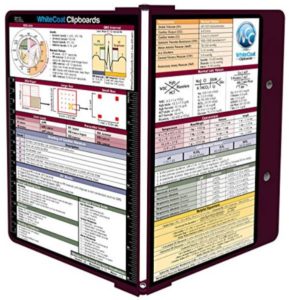
Medical Clipboard – I absolutely love this clipboard. It is perfect for keeping notes and taking histories, and it’s HIPAA compliant. Plus, it has lots of essential facts. Even better, it folds right up and fits in your white coat!
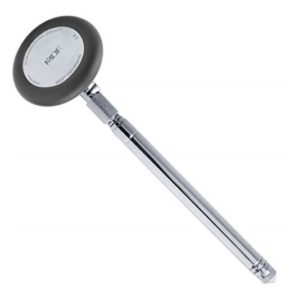
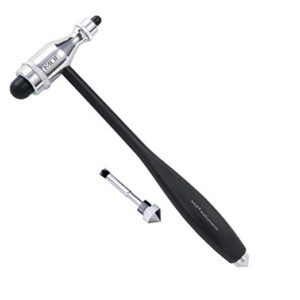
These two reflex hammers are very popular and easy to get reflexes on. I have the circular telescoping one, but the hammer one is also great! I was terrible at getting reflexes on the cheaper reflex hammers, and now it’s a breeze using these hammers.
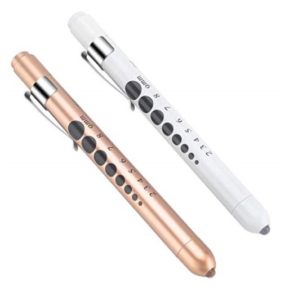
Pen Light – so important and I love the rose gold!
How To Not Pass Out During Surgeries
Many students fear passing out during surgeries. It happens, but there are many ways we can prevent this.
- Wear compression stockings (they make cute ones like these)
- Eat breakfast and lunch. And eat between cases. I always had a Larabar, Chomps meat stick, and water bottle in my white coat.
- If you start to feel faint, start moving your legs to get the blood flowing, tell someone, and sit down.
This cute little water bottle fits right in your white coat.
I made it through the rotation without passing out, but I came close one time. I had a few bites of breakfast, headed out the door and found a skunk on my front porch, so the morning was already off to a rocky start. I freaked out inside and inched my way down the steps as the skunk scurried off. Then as I’m walking to school, there is another skunk 10 feet in front of me. I cross the street, and this time there is a possum steps away from me. At this point, I am freaked out and walk in the middle of the street the rest of the way (there are no cars at 5 am). Of course, this is also a day I forget to wear my compression stockings.
Finally, I make it to school, round with the team, and head off to the first surgery of the day, an open reduction and fixation of a mandibular fracture. The resident and I are finishing up the surgery, and I am actually being helpful holding the jaw in place so the resident can close. That is when I started feeling lightheaded and nauseous. I start moving my legs and shifting my weight to get the blood moving. The bloody smells in the mouth are strong, and I am suddenly drenched from head to toe in sweat. Finally, I say I am sorry but have to leave, quickly scrub out, and go sit down outside the OR. It was the closest call. Moral of the story: eat, drink, wear compression stockings, and don’t get spooked by skunks.
Self-Care During the Surgery Clerkship
Sleep. Sleep. Sleep. This is huge. The 4:45am or earlier wake-ups are tough if you do not go to bed early. If you are like me and need your sleep, you will need to try to sleep by 8 pm every night. Some nights, I would be asleep by 7:30 pm. Looking back at my Fitbit sleep data from my surgery rotation, I interestingly slept very well, often hitting 7-8 hours of quality sleep. I knew I needed solid sleep to function and made a conscious effort to do so.
Keep your normal schedule going. If you exercise at the end of the day, try to keep it up. Admittedly, I fell out of my exercise routine on surgery. Some people are able to keep going strong. Keep meal prepping. If you don’t, you will be hungry and potentially end up eating junk. Stay in touch with your friends and loved ones. Yes, you are on a tougher rotation. No, that does not mean surgery sucks the life out of you. There is still plenty of time to hang.
How to Study for the Surgery Clerkship
Don’t be a gunner, but act interested. It’s easier if you are actually interested than faking it. I read Dr. Pestanas Surgery Notes before starting UWorld. It’s a very quick read and easy to follow. I also read many sections of the De Virgilio Surgery textbook. The sections are only a couple pages long and a great, quick review of the high yield points for the shelf and OSCE. Then, I did all of the surgery questions in addition to the GI medicine questions, as GI is a big portion of the shelf. I also did the OnlineMedEd surgery sections. Always take an NBME practice test if you can. Our school gave us one free voucher for every clerkship (they cost $20). They tended to be pretty accurate in terms of predicting scores and some of the questions were very similar to the actual shelf. Aim to take one mid-way through the rotation to make sure you are passing.
Top Surgery Clerkship Resources
Dr. Pestana's Surgery Notes – Read this book once, maybe a second round before the shelf.
DeVirgilio Surgery – This book was great! So helpful before starting subspecialty rotations.
Case Files Surgery – This book is great for reading between patients and for preparing for the OSCE.
How did you study for your surgery clerkship?
Disclaimer: This post contains affiliate links to help support this blog and keep it ad free. There are no additional costs to you.

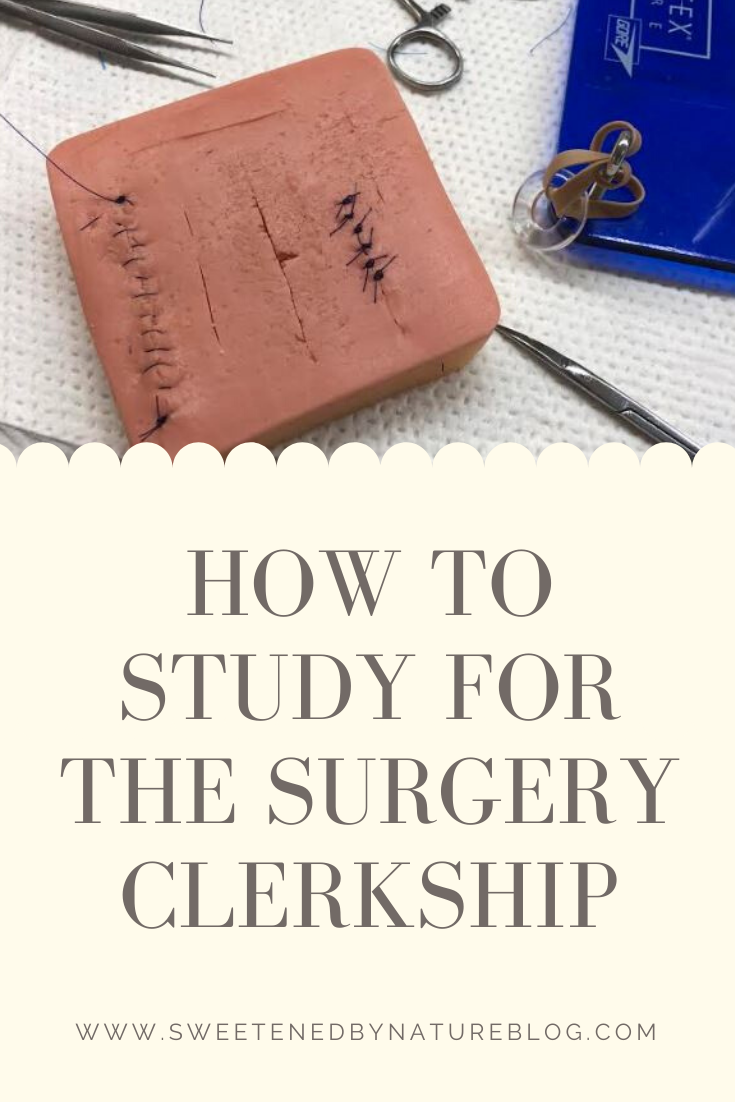
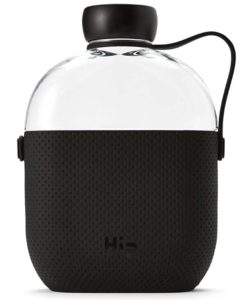
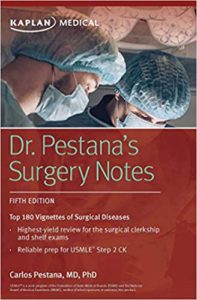
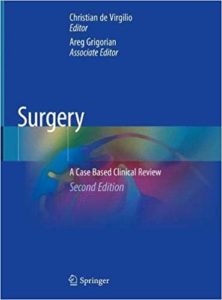
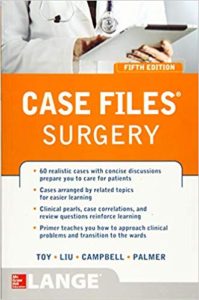
Leave a Reply